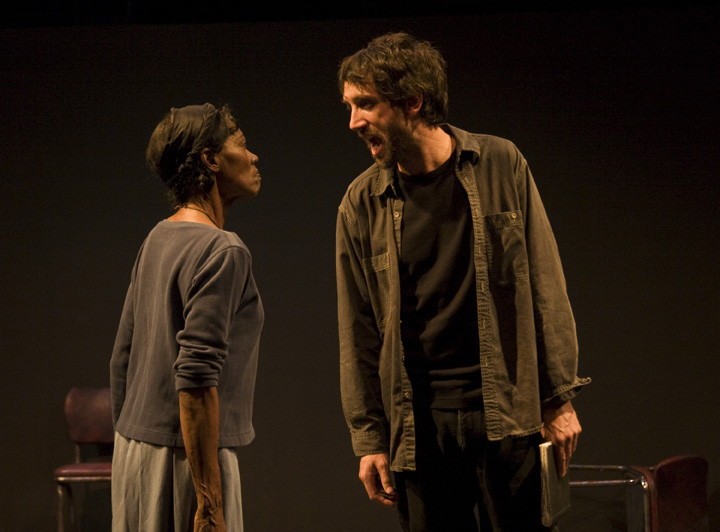Good ideas fall flat
PTE’s Goodness provides ‘fascinating’ explorations into our psyche, but lacks coherence
Although Michael Redhill’s ideas in Goodness are fascinating explorations into the human psyche, the transition to theatre performance falls short of being a coherent examination of the motives behind peoples’ actions.
This production features Gord Rand playing the role of the playwright himself, Michael Redhill. The audience catches a glimpse into the playwright’s mind as he forms the play from the tale that is told to him by genocide-survivor Althea.
A story about holocaust, emotive anguish and justice, Goodness reflects upon deeply philosophical questions.
Being able to see the play “written” while it is performed, with Redhill occasionally interrupting Althea’s story with his own musings, is a unique and interesting approach to take. This perspective offers a light-hearted feel to the performance within the seriousness of the main topic.
The acting is well-conducted throughout the performance, particularly by J. D. Nicholsen. However, war criminal Mathias Todd (played by Layne Coleman) is more tiresome than fearsome. In addition, Lili Francks as the older Althea presents one monologue in particular in which she shares an anecdote of her experience seeing her family being killed, and it too is a disappointingly weak performance; her over-the-top dramatic rendition appears more contrived than anything else and fails to touch the heart.
Traditional folk songs are integrated into the play periodically to supplement the performance on stage. The actors have admirable singing voices and smoothly transition between their roles when they slip into new characters. However, the singing is interjected a little more frequently than is strictly necessary.
The simplicity of the set – an empty stage with just a few chairs that change position in accordance with each new scene – is artfully constructed.
Director Ross Manson has done an excellent job in structuring the play for the Prairie Theatre Exchange’s thrust stage.
The concepts addressed here encompass a range of thought-provoking notions, including an analysis of why “good” people do evil deeds, as well as attending to the overarching theme of “the other.”
While these are worthy issues to explore, packing them together into a two-hour theatre performance doesn’t allow for each of these questions to be adequately developed.
Goodness has many clever ideas within it, controversially making sensitive observations such as what constitutes a “survivor” or a “sufferer” in the context of a conflict, but unfortunately the play could use some more tweaking during the writing stage of the process to make it a truly outstanding show.
Published in Volume 64, Number 16 of The Uniter (January 21, 2010)








